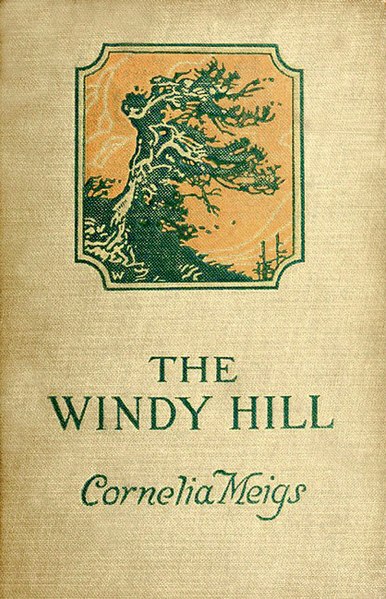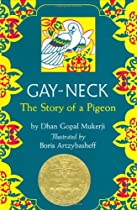The children’s novel The Windy Hill by Cornelia Meigs (published 1921) provides a unique early twentieth century portrayal of a particular summer of two city teenagers spending a summer with a dull but wealthy uncle, the intrigue of the story is predictable and lacks true excitement. Children today will not be impressed with the outdated portrayals of teenagers and will likely be distracted by the inner stories that simply don’t feel relevant to the book or to life today.
Fifteen-year-old Oliver Peyton and his 13-year-old sister Janet have been sent to live in the country with Uncle Jasper for the summer. While Uncle Jasper’s large house and modern car suggest that the summer could be exciting, Uncle Jasper is dull and withdrawn, and Oliver is particularly annoyed when Uncle Jasper suggests they meet cousin Eleanor, who lives nearby. (Oliver declares that he doesn’t like girls.) As he runs away, Oliver meets an old beekeeper and his daughter, Polly, who live near a high, windy hill, and he finds he enjoys hearing the stories the old man tells from the last century. Over the course of the novel, the old man tells three lengthy stories that end up tying in nicely with a local situation involving a poor man named Anthony Crawford, rich Uncle Jasper, and the still-unknown cousin Eleanor.
Although Oliver and then Janet become intrigued both by the stories the beekeeper tells and by Anthony Crawford as a mysterious man, the “adventure” to discover the connections between the stories and the characters is not very exciting. The end of the novel portrays a fast-paced rescue of local lands, of which (spoiler) Oliver becomes the hero.
Modern children may enjoy the unique format of The Windy Hill, with the storytelling from the old beekeeper and the question of how the stories all relate to Oliver’s summer. They may enjoy meeting the crabby Mr. Crawford and the mystery of what Oliver finds in his house. The final chapter had the revelations of how it all fit together, as well as the action of the children coming to the rescue.
But the book as a whole fell short from today’s perspective. First, there is the general stereotype of Oliver and Janet as “children,” when in reality they are 15 and 13, respectively. Oliver acts immature in the beginning and is simply not convincing as a teenager. What 15-year-old boy declares he doesn’t like girls and refuses to meet a relative for that reason? The outdated portrayals of gender roles also bothered me. During most events, Janet and Polly are asked to, essentially, step aside while the “men” take care of things.
In addition, the first story from the beekeeper gave an inaccurate depiction of a supposed American Indian folktale. Many readers will declare that such a story is typical of the era and I should just take it as it is. All the same, it is not something I feel we need to read when there are so many “own voices” today. Finally, all three of the stories the beekeeper tells feel disjointed. They don’t read as if someone telling a story. They are chapter-length and honestly, they are boring. I liked historical fiction, but these stories just did not draw me in.
In 1922, the first year of the Newbery Award, The Windy Hill was named a runner-up to the Medal. I haven’t yet read the other runner-ups for the year, so it could be that Cornelia Meig’s writing is superior; there is nothing wrong with her writing style. But since The Windy Hill fails to deliver excitement and lacks so much, I don’t think it is a necessary addition to anybody’s bookshelf today and I have no strong interest in it’s being included in the Newbery list.
I rate The Windy Hill Newbery Honor as “okay” and say “don’t bother.”
Newbery rating scale: FANTASTIC | REALLY GOOD | PRETTY GOOD | OKAY | BLAH
What to do with this Newbery: KEEP IT AND READ IT | MAYBE IF YOU HAVE TIME | DON’T BOTHER





